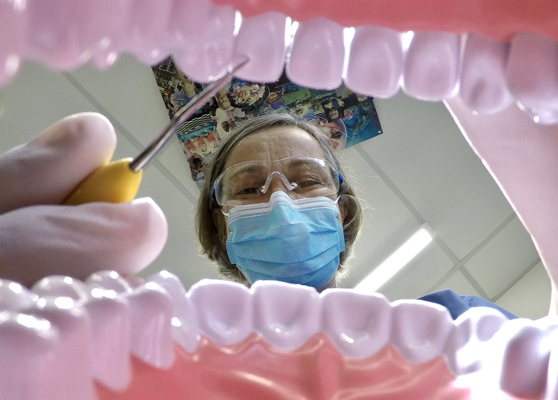Dental emergencies are unpredictable and typically painful, leaving many people feeling unsettled and unsure about their next steps. Sudden issues with teeth, crowns, or gums require immediate attention to prevent further complications and reduce discomfort as quickly as possible. Here are some typical urgent dental emergencies, why they happen, and practical steps for managing them until professional care is received:
Knocked-Out Tooth
One of the most severe dental emergencies is a knocked-out tooth. Whether it happens during sports, an accident, or even a fall, this situation demands immediate action to save the tooth. If the tooth remains intact, gently rinse it with clean water and avoid touching the root. Place the tooth carefully back into the socket, if possible, and hold it in place with a clean cloth or gauze. If reinserting the tooth is too painful, store it in milk or a tooth preservation kit. Seeking professional treatment as soon as possible increases the chances of saving the tooth and prevents potential long-term issues.
Severe Toothache
Toothaches often come on suddenly and bring sharp or throbbing pain that disrupts your ability to focus or function. The pain may stem from deep decay, an infection, or even gum disease. Start by rinsing your mouth with warm salt water to help cleanse and soothe the area. Apply an ice pack to the outside of your cheek near the affected tooth to reduce swelling and numb the pain.
Broken Crown
A broken or dislodged crown is another dental issue best handled quickly, as it affects not only the appearance of your smile but also the function and protection of the tooth. If the crown comes off entirely, keep it in a safe place and clean the exposed tooth gently to avoid further damage. Some dental adhesives or toothpastes can temporarily secure the crown for reattachment. This quick fix will safeguard your tooth until a dentist can properly repair or replace the crown.
Painful Biting
Pain that occurs when biting into food may signal an undetected issue with a tooth or surrounding structures. It may result from a crack, cavity, or even nerve irritation beneath the surface. Avoid eating on the affected side until you have a proper diagnosis. Soft foods that don’t require much chewing can help prevent the discomfort from worsening. Visiting a dentist as soon as possible will allow them to assess the problem and restore comfort and functionality.
Practical Steps
Urgent dental emergencies can be a challenge, but preparation helps alleviate the stress. Here are a few tips to keep in mind:
- Always keep a dental first-aid kit with items such as gauze, a small container, and salt for rinsing.
- Be aware of the contact information for your dentist and the nearest emergency dental care provider.
- Act quickly and confidently to manage the issue until professional help is available.
Understanding how to handle dental emergencies helps preserve health and comfort. Whether it’s a tooth knocked out, a painful bite, or a broken crown, quick and appropriate action minimizes the risk of escalating problems.
Schedule an Appointment for Urgent Dental Care
Don’t wait to seek help when needed, and stay mindful of the need for follow-up care for long-term dental well-being. If you are experiencing a dental emergency or have concerns about your oral health, don’t wait. Schedule an appointment with your dentist today. Early intervention can make a significant difference in resolving issues effectively and preventing further complications. Contact your dental office now to make sure you receive the urgent care you need.

